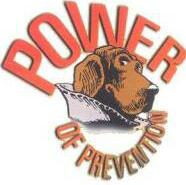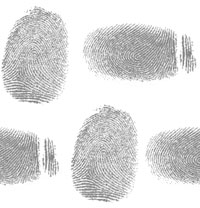

What is CHIP?
CHIP stands for
CHILRENS' IDENTIFICATION PROGRAM
Every parent has experienced the panic of not knowing where their child is,
even if only for a minute. Each day, children wander off in department stores,
amusement parks, and campgrounds. Thankfully, most lost children are quickly
recovered and returned to their parents.
But even with the best parental care, nearly 2,100 children a day, or almost 2 children a minute, are reported missing. Many can be recovered if their parents immediately provide police with a complete record of identification. Parents should always be prepared, just in case of emergency, by keeping updated records at home & away.
The Loyal Lodge CHIP Program is a
comprehensive service. CHIP is provided free of
charge to the public, with all of the identifying items generated during the
events given to the child's family.
The CHIP program includes the following:
 POLAROID PICTURE: A "head and
shoulders" portrait that can be
POLAROID PICTURE: A "head and
shoulders" portrait that can be
quickly distributed to the media in order to reach a huge audience.
 FINGERPRINTING: Fingerprinting is a
well-known means of identification. Resourceful parents keep fingerprints
available should the need arise.
FINGERPRINTING: Fingerprinting is a
well-known means of identification. Resourceful parents keep fingerprints
available should the need arise.
 DENTAL CHART: A dental chart is quick and
easy to produce. Teeth, like fingerprints are unique. A dental chart gives both
accurate and important information for identification purposes.
DENTAL CHART: A dental chart is quick and
easy to produce. Teeth, like fingerprints are unique. A dental chart gives both
accurate and important information for identification purposes.
 DNA SAMPLE MATERIAL: With just a few
hairs taken from your childs' hairbrush positive identification can be made
scientifically.
DNA SAMPLE MATERIAL: With just a few
hairs taken from your childs' hairbrush positive identification can be made
scientifically.
The FBI estimates that at least 2300 children are reported missing every day. Parents need to begin educating their children about safety issues at a young age, starting around 3-4 years old.
Print out this page and review the tips with your child. Afterwards, please take our quiz to reinforce safety issues.
Approach the subject of safety in a non-threatening way. It is important that you don't make your child fearful of dangerous situations or people, but cautious and able to recognize when something is not right.
Encourage your child to trust his or her intuition, and to be able to talk to you when something is bothering them. They should know not to keep secrets from you. Open communication is very important. Really LISTEN to your child.
Let your child know that their body belongs to them. No one has the right to touch them inappropriately. If someone is touching them or making them feel uncomfortable in any way, they should let you know immediately, even if it is a family member.
Inform your child of the rules pertaining to strangers.
Namely, that a stranger:
-looks just like any other person, not like a monster or creature.
-A stranger is someone that your child does not know nor does his or her friends
and family.
The most common lures are:
-pretending to look for a lost dog
-having candy/money for the child if they go to their car with them
-telling the child that they'll hurt family members if they do not comply
-asking for directions.
Let your child know that adults DO NOT ask children for help nor do they threaten them. If they do encounter any of these situations they should immediately scream, "NO," and run as quickly as they can in the opposite direction and try to find a trusted adult.
They should never approach an unknown car or get into a car with an adult that they do not know.
If someone tries to grab them the child should scream, "THIS IS NOT MY PARENT!" to attract attention.
Share an easily-remembered secret CODE WORD. Tell your child that if anyone approaches them and says that they are a family friend and that they need to take them somewhere (sometimes they say that a parent is hurt and in the hospital or there's a family emergency), your child must ask for the code word. If the person really is a friend, they will know it. If they don't know it then your child should run away as quickly as possible.
Never label your child's clothing, backpack, or other personal items with their name. An abductor could use this information to try to gain trust in your child.
Give your child instructions on what to do if they get separated from you in a mall, supermarket, or other public place. Tell them to go to a check-out counter, information desk, or to approach a security officer or mother with children and let them know that they are lost and looking for their parent(s). Make sure that your child knows his or her full name, address, phone number, and the place where you work or can be contacted, as well as how to dial 911, make collect calls, and dial the operator on a pay phone.
Know where your child is at all times, and keep a list of their friends, addresses, and phone numbers.
Keep a record of your child's personal and medical information on-hand in case of emergency. Make sure they are fingerprinted and that you have a recent photo of available at all times. Our CHIP Kit keeps all the vital information that you need to provide authorities immediately accessible. Remember to update your records every 6-12 months because of your child's growth.
Try not to panic if your child is missing. First check everywhere in the house, then check with the neighbors and your child's friends. If you still cannot locate them, immediately call the police.
THERE IS NO WAITING PERIOD REQUIRED TO REPORT A MISSING CHILD TO THE POLICE.
Give them a description of your child's clothing, along with your CHIP Kit. Let them know when you last saw your child. Request that your child's name be entered into the National Crime Information Center Missing Person File (NCIC), which enables any law enforcement agency in the U.S. to identify them. Call the National Center for Missing and Exploited Children at 1-800-THE-LOST to have your child entered into their database. Post signs around your neighborhood and town with your child's photo and vital information. Be persistent in your search efforts and keep hope alive that your child will be found and returned home safely.